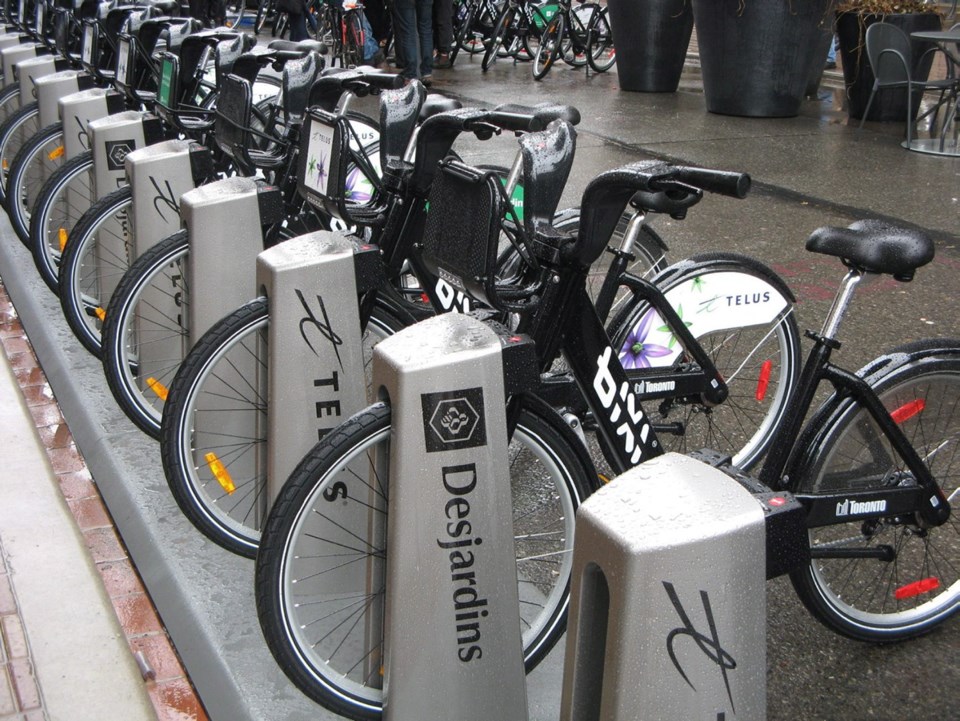Victoria will watch closely how Vancouver uses its head in implementing its new bike-share program, says Victoria Mayor Dean Fortin.
“Everyone’s waiting to see how Vancouver resolves the helmet issue,” Fortin said Wednesday.
“Generally, the most successful programs, the ones in Europe and in Asia, aren’t required to use helmets, so there’s a question that the use of helmets might not make the program successful. So Vancouver is taking the lead and everyone is trying to see how they resolve that.”
Vancouver city council last week gave the go-ahead to a public bike-share program, expected to launch in the downtown core and the area between Arbutus Street, 12th Avenue and Main Street by early 2014.
Last May, Victoria council endorsed a sustainability action plan that included the recommendation that the city consider a bike-share program.
Fortin said the helmet issue is a big one. B.C.’s Motor Vehicle Act requires that anyone riding a bicycle wear a safety helmet.
“Clearly … you have to rent the bike and you have to rent the helmet, and then some people have issues about wearing hats that other people have worn. We still have interest in the program, but we need to see how that issue is going to be resolved.”
Victoria director of sustainability Roy Brooke said that a bike-share program like Vancouver’s is something the city has been looking at but, right now, the focus is on renewing the bicycle master plan first.
Vancouver’s bike-share program is to be privately owned and operated by Alta Bicycle Share Inc., which also operates the Hubway system in Boston.
But while the Hubway system is paid for through a mix of sponsorship, advertising, grant money and user fees, the City of Vancouver will invest $6 million in tax dollars to set up its bike-share program and $500,000 a year to maintain it.
Vancouver’s plan, modelled after programs in cities such as Montreal, Toronto and Paris, will eventually make about 1,500 seven-speed bikes and 125 solar-powered docking stations available. Specialized vending machines will dispense helmets to comply with B.C.’s helmet laws.
The first phase will consist of 250 bikes at 25 stations in part of downtown in early 2014.
Once the program is launched, people will be able to buy daily, weekly, monthly or yearly memberships good for unlimited trips of up to 30 minutes. Additional fees are charged for trips longer than 30 minutes.
The company proposes to use special gear-driven bicycles with hard rubber tires built by Bixi Public Bicycles System Co. of Quebec.
Coun. Chris Coleman said Victoria will watch the Vancouver experience but will also have to do some fiscal analysis before jumping in.
“We know that Toronto has found some fiscal problems with their program and it’s going to need to be subsidized in a bigger way than originally projected, if they’re to carry it on,” he said.
Launched in the spring of 2011, Toronto’s Bixi bike-share program is no longer able to meet its debt payments, including a $3.9-million loan guaranteed by the city. Toronto council is now awaiting a report on how to keep the program afloat.



